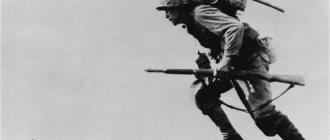Essay on the topic of nature in the works of Pushkin
The great Russian poet A.S. In his work, Pushkin created a wonderful treasury of national art of speech - the specifics of Russian stylistics, expressive means of language, artistic techniques for figuratively reflecting reality. One of the most striking examples reflecting the features of Pushkin’s worldview and the artistic originality of his work is the image of nature. We will try to show this both by the example of Pushkin’s landscape lyrics itself, and by the example of a number of his works, where natural images play a particularly important, significant role. When reading Pushkin’s poems about nature, one immediately notices the extraordinary accuracy and brightness of the image, the poet’s brilliant ability to convey unusually capacious and deep content in a laconic artistic form, to display all the diversity of shades of feelings and experiences of the lyrical hero. Since the genre of the essay does not allow us to cover the entire volume of Pushkin’s poetry, we will try to prove this idea through an analysis of the poet’s poems dedicated to winter Russian nature. Take, for example, the wonderful poem “Winter Evening.” It would seem that this describes a natural phenomenon common to Russian people - a winter blizzard. However, Pushkin describes this familiar blizzard in very detail and unusually: the poet’s eyes and ear highlight various shades in it, usually hidden from the superficial observer. First comes a purely visual, general impression: the sky is covered with darkness, a frantic wind swirls snow whirlwinds in the field. Then the poet moves on to the very voice of the blizzard, its diverse, bizarre transitions and shades: now the howl of an animal (most likely a wolf howl), now the cry of a child, now simply the rustle of a thatched roof under gusts of cold wind, now the knocking on the window of someone lost on the way. Let us also pay attention to the fact that the entire passage is characterized by extraordinary dynamism, sheer movement, and life. This is achieved by the generous use of verbs of motion: the blizzard “covers the sky”, “spins whirlwinds”, “howls”, “cries”, “rustles the straw”, “knocks on the window”. A special role in creating the image of a blizzard is played by repetition (the first and last stanzas) and sound design: the intensification of the vowels “o”, “a” in itself perfectly conveys the howl of the wind. In general, the image of winter, descriptions of winter nature are quite often found both in poetry and in Pushkin’s prose and are most often associated with images of the homeland, everything that is so dear and close to the poet and any Russian person. Thus, the description of the blizzard in “Winter Evening” turns into a memory of the nanny - one of the people closest to Pushkin, who introduced him to folk culture, who for the first time revealed to him the poetic charm and beauty of the Russian fairy tale. The landscape in the poem “Winter Road” is inextricably linked with images of a long road, the Russian troika and the coachman’s songs, reflecting the rebelliousness and contradictory nature of Russian nature: ... That revelry is daring. It's heartbreak. Images of the road and the “impatient horse”, the desire to “indulge in running” also appear in the finale of “Winter Morning” - a poem that very poetically conveys the brilliance and colors of winter nature: Under the blue skies With magnificent carpets, Glistening in the sun, the snow lies; The transparent forest alone turns black, And the spruce turns green through the frost, And the river glitters under the ice. Here we also note the poet’s closeness to folk art and Russian fairy-tale traditions, which is manifested in the combination of the image of the lyrical hero’s beloved with the image of a beauty - the “star of the north.” Folklore motifs and a connection with folk songs can also be traced in the poem “The cold winds are still blowing...”, imbued with a joyful premonition of the coming spring, when “the sticky leaves will bloom, // The fragrant bird cherry will bloom.” In Pushkin's works, especially in his prose works, the landscape is interesting as part of the real setting in which the action takes place; it emphasizes or shades the mental state of the characters and the nature of the events taking place. This is, for example, the description of the stormy Orenburg steppe, where Grinev’s first meeting with Pugachev takes place, which M. Tsvetaeva called one of the “test meetings” of the heroes. It is here that Pugachev makes his choice in relation to Grinev, choosing the human path, and not the position of a wolf - he does not abandon him in the stormy steppe. The image of a raging, formidable element, a blizzard sweeping the path, also strengthens the symbolic plan of this episode of “The Captain’s Daughter,” explaining the ideological meaning of Pugachev’s figure - a “counselor” who leads you to the right road and, at the same time, a fighter, ready for trials and resistance to difficulties for the sake of his cause . In Pushkin’s “The Snowstorm,” winter images highlight the characters’ experiences. The image of a blizzard, on the one hand, enhances the confusion and disorder of Burmin and Marya Gavrilovna and, at the same time, their determination to fight for their own happiness and prove their love. On the other hand, it is a kind of symbol of fate, which separated the heroes, to “test” their love through a long separation. The symbolic color white also occupies a special place in the story. It is no coincidence that Burmin first sees Masha in a white dress by the pond, and then against the backdrop of dazzling white snow - the embodiment of purity and innocence. During the southern period, images of the sea occupied a special place in Pushkin’s work. The poet romanticizes the exile, which seems to correspond to the needs of his soul, his spiritual growth: The daylight has gone out; The evening fog fell on the blue sea. Make noise, make noise, obedient sail. Worry beneath me, the gloomy ocean. The central theme of this poem is the feeling of new impressions necessary for spiritual growth and moral purification. Hence the motive of freedom and the closely related motives of romantic escape from the fatherland and the rebirth of the soul, which rushes to the elemental life of nature, embodied in the image of the ocean. However, Pushkin’s romantic principles are most fully embodied in his poems, where the southern landscape performs two main functions: it serves as one of the means of creating local color and reflects the main features of the rebellious, restless nature of the romantic hero. This was especially evident in “The Prisoner of the Caucasus,” where the Caucasus appears as a free and wild element, with which the romantic hero contrasts, not free from the shackles of civilization and therefore alien to this nature. Speaking about Pushkin's lyrics, it should be noted that he does not have many poems where nature has an independent, uniquely valuable character, contributing to the creation of the image of the lyrical hero. He can hardly be classified as a poet in whose work landscape lyrics occupy a central place, like, say, A. Fet. The genius and greatness of Pushkin are manifested precisely in his desire for universal harmony and a synthetic worldview. Therefore, we can say that all of his work is a continuous and consistent creation of a holistic picture of the world in the unity of man and nature; synthesis of natural, natural and rational, human principles. In this regard, it is interesting to consider the landscape and the main natural images of the poem “Anchar”. The image of anchar - the “tree of poison” - appears in the poem as a symbol of world evil. It is noteworthy that in Pushkin, evil is, as it were, isolated in nature, surrounded by death. Hence the essentially oxymoronic image of “dead greenery” – a deadening rather than life-giving principle. The symbolic images of a tiger and a bird as the strongest and weakest creatures and, at the same time, earthly and heavenly, emphasize the author’s idea that evil in nature is never used consciously, animals never turn to evil in order to assert their strength: The bird also approaches it does not fly, And the tiger does not come... Evil in nature is spontaneous, which is illustrated by such verbs as “wandering”, “will come running”, while in human society it is conscious and that is why it is scary and dangerous. The rational principle in man, the thirst for power over his own kind, gives rise to universal evil. Thus, the landscape in “Anchar” serves to comprehensively reveal the author’s idea, and symbolic images of nature serve to create a holistic poetic picture of the world, which is generally typical of Pushkin’s work. So, for example, the sea, wind, thunderstorm act as symbols of freedom, the impulses of the rebellious spirit of the lyrical hero, his desire to free himself from the shackles of captivity: Leap, winds, blow up the waters, Destroy the disastrous stronghold - Where are you, thunderstorm - a symbol of freedom? Rush across the unwitting waters. The poem “Echo” clearly illustrates how the most ordinary phenomenon, the prose of life, can serve as a theme for a poetic work. The natural image of an echo symbolizes in Pushkin the poet, responsive to all phenomena of the surrounding life: ...To every sound You suddenly give birth to your response in the empty air. So, nature occupies a very important place in both the poetic and prose works of Pushkin. In his lyrics, it can play either an independent role, reflecting the feelings of the lyrical hero, or be of a symbolic nature, illustrating or explaining the author’s thought. In Pushkin's prose, the landscape most often appears as part of the entire picture depicted, and correlates with the nature of the narrative and the mood of the characters.
Landscape lyrics by A.S. Pushkin
Pushkin's landscape lyrics are rich and varied. It occupies an important place in the poet’s work. Pushkin saw nature with his soul, enjoyed its eternal beauty and wisdom, and drew inspiration and strength from it. He was one of the first Russian poets who revealed to readers the beauty of nature and taught them to admire it. In merging with natural wisdom, Pushkin saw the harmony of the world. It is no coincidence that the poet’s landscape lyrics are imbued with philosophical sentiments and reflections; one can trace its evolution throughout Pushkin’s creative activity.
During the Lyceum period, the poet created elegies “Autumn Morning”, “Singer” and others, written in the spirit of sentimentalism. In his early lyric poetry, Pushkin used landscape sketches as a background against which the various feelings of the lyrical hero emerge more clearly. Compared to the poets of previous eras, Pushkin’s landscapes look new, fresh, full of life.
In the elegy “Village,” the landscape of the countryside is given as an idyll; in the first and second parts of the poem, “traces of contentment and labor are everywhere.” There is peace, tranquility and silence all around. Here, pictures of nature create a sharp contrast with the content of the third part, where the author exposes the injustice of the ruling classes.
The poems “To the Sea”, “The Daylight Has Gone Out...”, “The Mighty Ridge of Clouds is Thinning”, “The Prisoner”, “Bird”, “Who, the Waves, Stopped You?..” relate to romanticism.
The poem “Bird” describes the folk custom of releasing birds from cages on the feast of the Annunciation. Pushkin associates this ritual with the motive of freedom, liberation from captivity.
The picture of the evening sea is shown by the poet in the poem “The Daylight Has Gone Out.” The coming darkness turns the sea into a “sullen ocean.” The gloomy landscape evokes melancholy in the soul of the lyrical hero, who is full of sadness and thinks only about heart wounds. The hero internally strives for the “shores of a sad, foggy homeland.”
The symbol of freedom in the romantic poem “The Prisoner” is the image of a young eagle. The poet contrasts the “damp dungeon” in which the prisoner is located with his memories and dreams of the sea, mountains, where his soul strives.
While in southern exile, Pushkin in many of his poems depicts the lush nature of the Crimea and the Caucasus and describes real landscapes. Often, images of nature are given as symbols that reflect the inner state of the hero. Romantic images of the sea, wind, storm, waves, and elements are widely used in Pushkin’s landscape lyrics. Thus, in the poem “To the Sea,” the poet glorifies the “solemn beauty” of the sea, from which he draws inspiration:
How I loved your reviews, dull sounds, abyssal voices, and silence in the evening hour, and wayward impulses!
The realistic landscapes reflect the theme of the homeland. In the poem “Winter Morning” we see an amazingly beautiful picture of the Russian winter:
Under the blue skies Magnificent carpets, Glistening in the sun, the snow lies, The transparent forest alone turns black, And the spruce turns green through the frost, And the river glitters under the ice.
The poet points out that the state of nature affects a person’s mood. In the evening, when “the blizzard was angry,” the poet’s friend “sat sadly,” but the weather changed, the sun came out, and the world was transformed.
The poem “Autumn” is one of the masterpieces of Pushkin’s lyric poetry. The poet writes about his favorite time of year. For some this is a “dull time”, but for Pushkin it is “an enchantment of the eyes!” He loves “the lush decay of nature, / Forests dressed in crimson and gold...”. It was in the fall that the poet felt a surge of spiritual strength, the poems themselves asked to be written down on paper.
Nature also pushed Pushkin to philosophical thoughts and conclusions. He contrasted the ever-living nature with the short, full of sorrows of human life. But the poet associated overcoming death only with nature, which gives wisdom and beauty.


